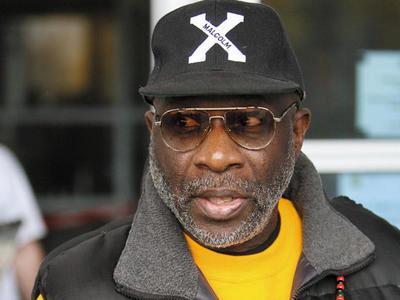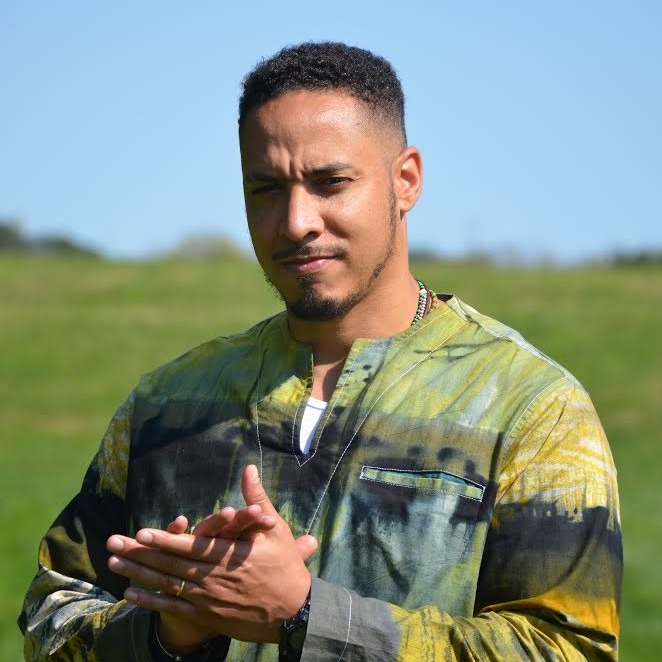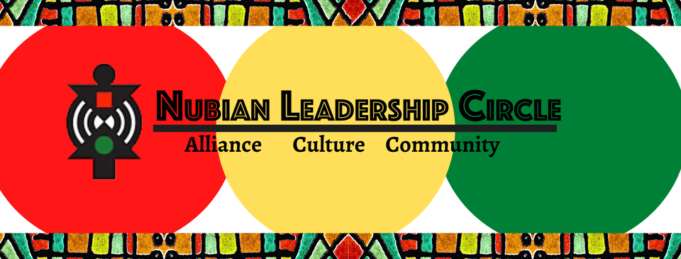A passionate and powerful coalition of activists continues to meet and strategize meaningful solutions in response to the systemic racism that remains rampant across society. With an even greater focus on African diaspora collaboration, a diverse group of Black individuals and groups continue working for much-needed justice and equality amid the collective journey toward liberation.
At its seventh gathering—held virtually—the Nubian Leadership Circle drew this diverse group of community members working towards an international mission: improving the lives of Black people everywhere. Representing various faiths and political leanings, leaders continue to pursue innovative solutions to enact change on local and global scales.
On January 28, educator T’Shango Mbilishaka delivered a powerful keynote address at the virtual meeting entitled, “Fulfilling De-termination to Build Our Own Black Nation.” Professor Griff, formerly of the legendary hip-hop group Public Enemy, was originally scheduled to deliver the keynote message but was unable to participate.
During the summit’s opening, convener Sadiki Kambon acknowledged the Honorable Minister Louis Farrakhan’s advice for the coalition to meet quarterly. Mr. Kambon underlined that what is essential isn’t just gathering but doing the work between summits and reminded attendees of participation from across the diaspora, including England, France, and Haiti.

During his powerful keynote address, T’Shango Mbilishaka urged participants to challenge the common notion of nation-building. He pointed out that current education and socialization systems were killing off generations by promoting an unproductive cycle of: “get killed, march, pray, forgive—repeat.” Mr. Mbilishaka urged participants to break free from this endless pattern with innovative ideas based on African ideology—one where a future nation could blossom into something extraordinary.
“To unlock our potential, we must break free from the oppressive language of colonialism,” he said. “Africa is a land of cultural variety and linguistic complexity—with over 2,000 languages spoken today. To truly emancipate ourselves, we must cultivate something unique: an African-centric way of thinking,” he added.
“Amílcar Cabral, a renowned leader in the liberation of Bissau-Guinean and Cape Verdeans, taught that measuring one’s capacity for freedom can be accomplished by examining their culture compared to those who dominate them. He also recognized internal weakness as our greatest foe—something affirmed by African Proverbs, which states: ‘where there is no enemy within, the enemies outside cannot hurt us.’
It is clear we need critical analysis and careful study if true self-determination amongst oppressed people is to become a reality. Until we break the oppressor’s monopoly over our minds, liberation is not only impossible, it’s unthinkable,” Mr. Mbilishaka pointed out. He also spoke about what Blacks in the diaspora can learn from the Motherland.
“Africa has a wealth of cultures that can provide us with innovative solutions to our present issues. The Akan people have created an impressive institutional infrastructure, while the Zulu boast successful social order and security models thanks to their well-developed war society. Communications and media systems are also available through African sources, giving us access to robust methods of acculturation and socialization which can be applied in today’s world,” he explained.

Mr. Mbilishaka noted that the current education system has limited Black people’s abilities to think outside the false dichotomy of Republican/Democrat and Capitalism/Socialism. “We must strive for something greater than these either/or dichotomies to create a new nation with solutions that will bring about real, meaningful change” he stated.
“Our ancestors presented us with an example we can learn from, opening up possibilities across conversations rather than settling on cookie-cutter answers given by today’s society. John Henry Clark said everything the European created has been designed to advance the Europeans. So we have to create for ourselves, for our future. And those not yet here,” he concluded.
During the latest virtual gathering, Mr. Kambon highlighted the eight cadres or working groups powering the organization’s progress: food/land; economic development; family essence; spiritual renewal; communication/technology; health/education and arts/culture.
Members of the various cadres reported being in a healthy and functional state and staying committed to their cause. Enu Yarbro and Helen Gregory spoke about the centuries-old war against Black families, further compounded by slavery’s denial of marriage rights.
Dr. Ray Winbush, a scholar, activist and research professor and the director of the Institute for Urban Research at Morgan State University, along with members of the economic development cadre are coming together to promote financial aid through monthly donations. Student Minister Rodney Muhammad of the Nation of Islam’s Mosque No. 12 and his wife Lisa Muhammad initiated a spiritual component that emphasizes prayer and fasting.
Minister Farrakhan has supported and encouraged the efforts of the National Black Leadership Summit from its inception. The Minister has addressed previous forums and shared words of guidance and wisdom. He spoke about critical issues at the sixth gathering of the conference and shared the vision for a Black nation and aspects of nation-building.
“What kind of nation do we really want?” Minister Farrakhan asked. “We are coming up talking about building a nation at the end of the 6,000-year rule of our former slave and colonial masters. Surely America is the greatest of those nations that came up in this last 6,000 years, but we’re looking at the death of America. We’re living to see the fall of a great nation, and it is unraveling before our eyes. So surely America cannot be the example of the nation that we desire to be,” he said.
“But where are they today? We have not an example of perpetuity in any of these nations. They come, and they go; they rise, and they fall because something inherent in their rise and in their fall has told us that they are not a good example for us to follow. So I began thinking, what should be our foundation? What will make the work that each of you are doing, and others are coming to join us in doing, what will make this work live beyond us?” the Minister continued.
“My beloved family, righteousness exalts a nation. I didn’t say religion because we have used religion as a crutch. And if the religion does not make us better, does not cultivate the divine essence of our being, then that’s the religion of the enemy. But the religion of God is what lifts us up and cultivates the greatness of God that He’s put, not in some of us, but in all of us.
“I’m so grateful for your desires to build a nation. That’s what God is calling us to do. Build a nation, not a nation to glorify our enemies, but a nation to glorify God.”
For more information about the National Black Leadership Summit visit, www.nubianleadershipcircle.org.













